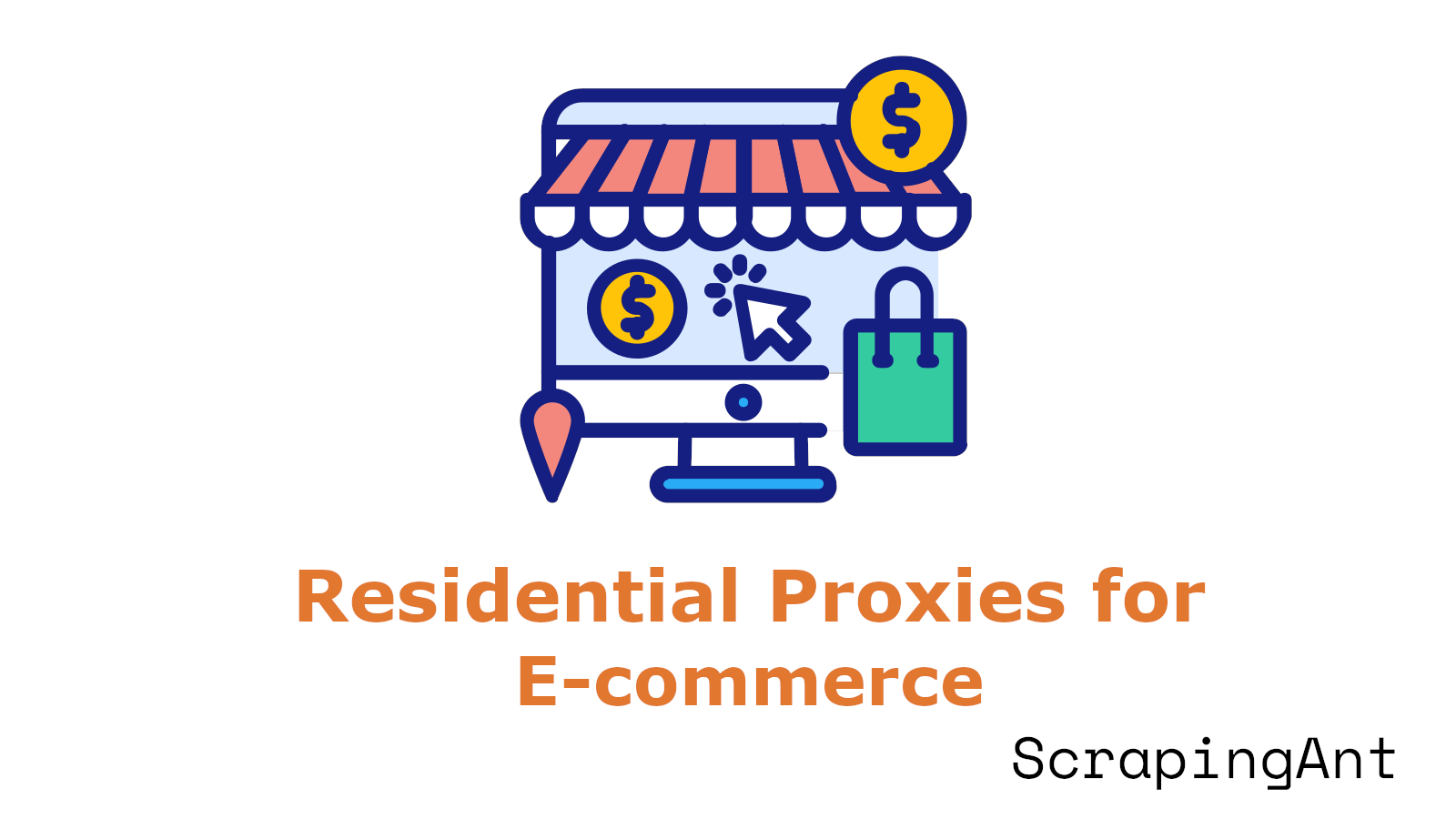
Residential proxies have emerged as a crucial tool for e-commerce web scraping, enabling companies to gather valuable market insights while maintaining anonymity and avoiding detection. These proxies, which utilize IP addresses from real residential internet service providers, offer a legitimate means to access and collect publicly available data from various e-commerce platforms. The implementation of residential proxies has become particularly significant as e-commerce platforms enhance their anti-bot measures and security protocols. Residential proxies provide superior reliability and success rates compared to traditional datacenter proxies, making them indispensable for large-scale e-commerce data collection operations. This research explores the comprehensive strategies, best practices, and optimization techniques for effectively utilizing residential proxies in e-commerce web scraping, while maintaining ethical standards and ensuring data quality.
Implementation Strategies and Best Practices for E-commerce Proxy Usage
Selecting the Right Proxy Infrastructure
When implementing residential proxies for e-commerce web scraping, choosing the appropriate proxy infrastructure is crucial. Businesses should consider factors such as:
Proxy pool size: A large, diverse pool of residential IPs ensures better coverage and reduces the risk of detection.
Geographical distribution: Select proxies from regions relevant to your target markets to access localized data accurately.
Rotation frequency: Implement automatic IP rotation to mimic natural user behavior and avoid triggering anti-bot measures.
Bandwidth allocation: Ensure sufficient bandwidth to handle high-volume scraping tasks without compromising performance.
By carefully evaluating these factors, e-commerce businesses can establish a robust proxy infrastructure that supports efficient and reliable web scraping operations.
Implementing Ethical Scraping Practices
To maintain a positive reputation and avoid legal issues, e-commerce businesses must adhere to ethical scraping practices when using residential proxies:
Respect robots.txt: Always check and follow the guidelines set in the target website's robots.txt file.
Implement rate limiting: Set appropriate request intervals to avoid overwhelming target servers and maintain a human-like browsing pattern.
User-agent rotation: Regularly change user-agent strings to diversify the perceived source of requests.
Comply with terms of service: Review and adhere to the target website's terms of service to ensure legal compliance.
By implementing these ethical practices, e-commerce businesses can minimize the risk of being blocked or blacklisted while maintaining a responsible approach to data collection.
Optimizing Proxy Performance for Large-Scale Scraping
To maximize the efficiency of residential proxies in e-commerce web scraping, consider the following optimization strategies:
Concurrent connections: Utilize multiple proxy connections simultaneously to increase scraping speed and data collection efficiency.
Caching mechanisms: Implement intelligent caching to reduce redundant requests and minimize bandwidth usage. (Scrapy)
Error handling and retries: Develop robust error handling mechanisms and implement automatic retries for failed requests to ensure data completeness.
Proxy health monitoring: Continuously monitor proxy performance and automatically remove or replace underperforming IPs to maintain optimal scraping efficiency.
By implementing these optimization techniques, e-commerce businesses can significantly improve the speed and reliability of their web scraping operations, enabling more comprehensive data collection and analysis.
Explore the most reliable residential proxies
Try out ScrapingAnt's residential proxies with millions of IP addresses across 190 countries!
Ensuring Data Quality and Accuracy
Maintaining high data quality is essential for deriving actionable insights from scraped e-commerce data. Consider the following best practices:
Data validation: Implement rigorous validation checks to identify and filter out incomplete or inaccurate data points.
Structured data extraction: Utilize advanced parsing techniques to extract structured data from complex HTML layouts accurately.
Cross-referencing: Compare scraped data with multiple sources to verify accuracy and identify discrepancies.
Regular data audits: Conduct periodic audits of scraped data to identify and address any systematic errors or biases in the collection process.
By prioritizing data quality and implementing these best practices, e-commerce businesses can ensure that the insights derived from scraped data are reliable and actionable for informed decision-making.
Integrating Proxy Usage with E-commerce Analytics
To maximize the value of scraped data, e-commerce businesses should integrate proxy usage with their analytics infrastructure:
Real-time data processing: Implement stream processing technologies to analyze scraped data in real-time, enabling quick responses to market changes.
Machine learning integration: Leverage machine learning algorithms to identify patterns and trends in scraped e-commerce data, enhancing predictive capabilities.
Competitive intelligence dashboards: Develop customized dashboards that visualize scraped data alongside internal metrics for comprehensive market analysis.
Automated alerting systems: Set up alert mechanisms based on predefined thresholds to notify stakeholders of significant changes in competitor pricing, product availability, or market trends.
By seamlessly integrating proxy-based web scraping with advanced analytics tools, e-commerce businesses can transform raw data into actionable insights, driving informed decision-making and maintaining a competitive edge in the market.
Conclusion
The effective implementation of residential proxies for e-commerce web scraping represents a critical capability in today's competitive digital marketplace. Through careful consideration of proxy infrastructure, ethical practices, and optimization strategies, businesses can establish robust data collection systems that provide valuable market insights while maintaining compliance and efficiency. The integration of advanced analytics and machine learning capabilities with proxy-based scraping operations has further enhanced the value proposition of this approach, enabling real-time market intelligence and competitive analysis. As e-commerce continues to evolve, the role of residential proxies in web scraping will likely become even more crucial, necessitating ongoing adaptation of best practices and technologies. Success in this domain requires a balanced approach that combines technical expertise with ethical considerations, ensuring sustainable and effective data collection practices that drive business growth while respecting digital boundaries.